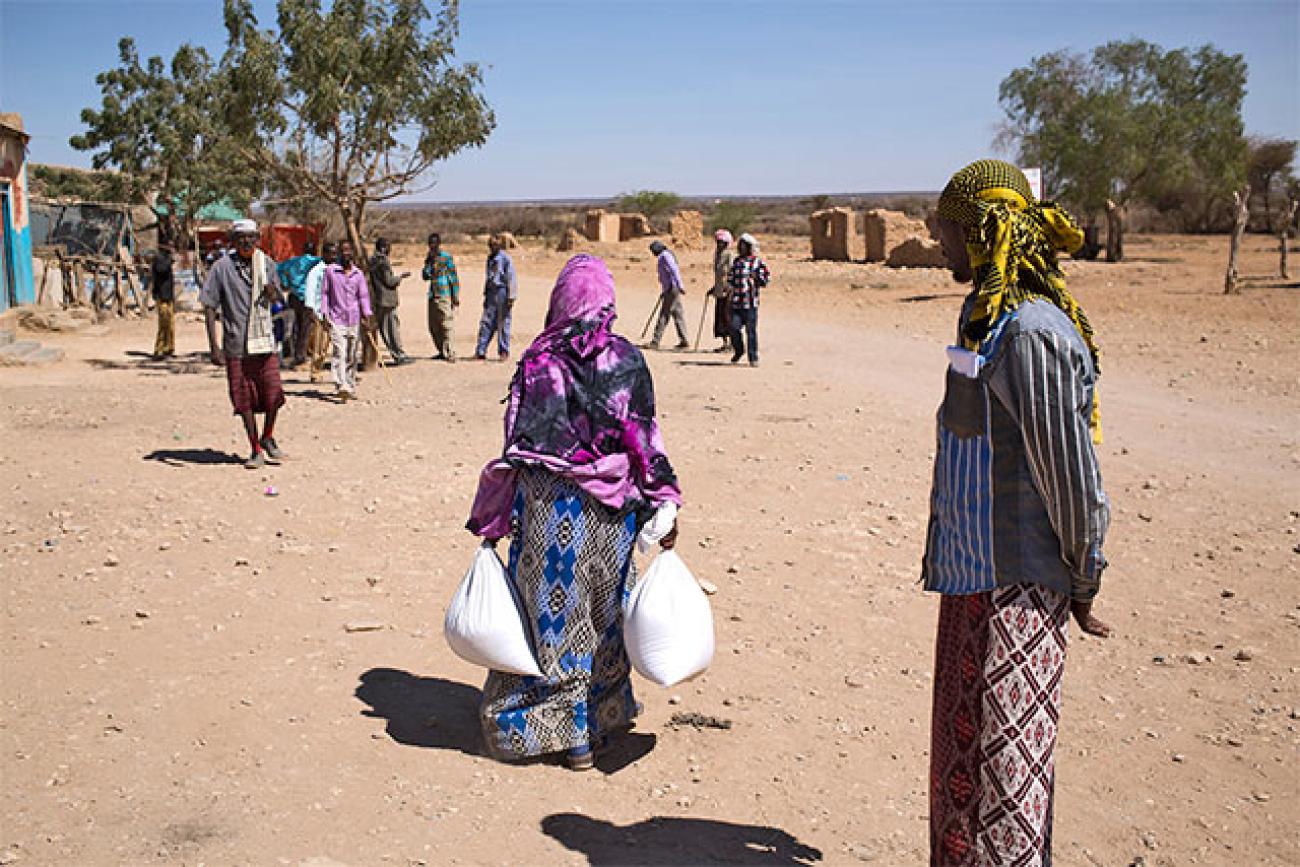FAO and NORCAP work together on famine prevention in Somalia

In 2016 and 2017, poor rains and an extended drought once again brought Somalia to the brink of famine, just five years after a similar crisis
In 2016 and 2017, poor rains and an extended drought once again brought Somalia to the brink of famine, just five years after a similar crisis had claimed the lives of more than a quarter of a million people. Fortunately, the Food and Agriculture Organization of the United Nations (FAO) and its humanitarian partners rapidly mobilized international donor support to prevent that worst-case scenario from unfolding.
FAO’s 2016–17 famine prevention operation in Somalia – which provided seeds, cash, and veterinary care – was one of the largest emergency operations in the history of the Organization. It involved organizing and transporting massive amounts of material (equipment, supplies, facilities, etc.), ranging from mobile water reservoirs deployed in remote regions to seed storage warehouses to pocket-sized mobile devices used to register beneficiaries in cash-relief programmes.
To help manage this substantial volume of equipment and infrastructure, FAO standby partner the Norwegian Refugee Council's expert deployment capacity (NORCAP) deployed logistics specialist Nisar Cheema to FAO Somalia in March 2017. The FAO Somalia operation proved to be one of the most challenging and complex Nisar had ever been involved in. "In Somalia, roads and transport facilities are limited, security risks are high, and some places where FAO was delivering were completely out of Government control. Internet is unreliable and coverage is poor. Plus, due to security issues and infrastructure limitations, the command centre of the operation is located in Kenya, adding another level of complexity," Nisar explained.
However, he added that the impact of an aid operation depends on the effectiveness of the logistical systems used to put it into play. During his year-long deployment with FAO in Somalia, Nisar focused on improving standard operating procedures, logistics streams, warehousing and vehicle fleets, as well as guidelines to direct the work moving forward. This brought about his next deployment, still with FAO but now at its headquarters in Rome, Italy.
Nisar is now tasked with implementing a global inventory management system and improving supply chain and logistics processes to respond more effectively in emergencies. He admitted, "Inventory management sounds dull, but it’s a core component of good logistics, and logistics is the key to delivering interventions that matter for people's lives, meaning the Organization will be able to reach more people more rapidly to deliver critical livelihood support."
“This current deployment at headquarters is a good example of how we really benefit from our relationship with NORCAP,” added Aiman Hija, Director of Finance and Treasury at FAO.
Link to original story



